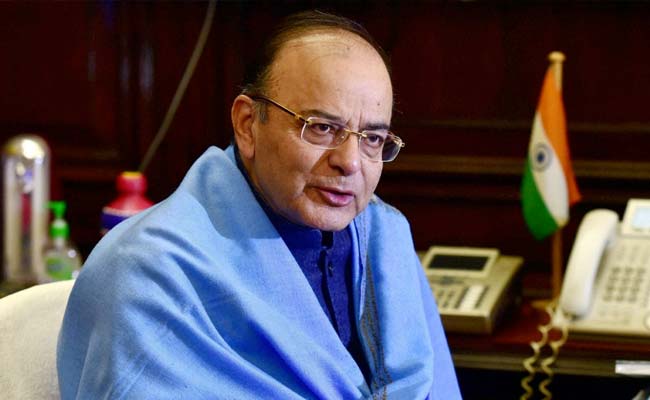Prime Minister
Narendra Modi on Saturday said the government would not shy away from taking difficult decisions such as demonetisation even if it brought short-term pain. He asked the “dishonest” to fear the wrath of the people, and warned that the time for their “ruin” was on its way.
“Ab jo samay aa rahaa hai woh beimaanon ki barbaadi ka waqt hai. Desh ki bhalai ke liye ye swachhta ka abhiyaan hai (The time for the ruin of the dishonest is coming. This is a movement to clean up the country),” Modi said at the Bhoomi Pujan ceremony for the Shivaji Memorial in Mumbai’s Bandra Kurla Complex (BKC).
He advised the hoarders of black money to submit to the law of the land and live in peace. “Ye sarkar aapko tabah karne ke liye tuli nahi hai. Aapko faansi pe chadhane ke liye tuli nahi hai. Lekin jo gareebon ke haq ka hai woh to aap ko chukaana hi padega, aapko bakhsha nahin jayega (This government doesn’t want to destroy you, it doesn’t want to hang you. But you will have to pay the dues of the poor. You will not be spared),” the Prime Minister said.
Speaking earlier at the inauguration of the new campus of the National Institute of Securities Markets (NISM) in Raigad in Maharashtra, Modi said the government would follow “prudent” economic policies, and put long-term gain over short-term pain.
“We will not take decisions for short-term political point-scoring. We will not shy away from taking difficult decisions, if those decisions are in the interest of the country. Demonetisation is an example. It has short-term pain but will bring long-term gain,” he said.
On November 8, Modi had announced the scrapping of Rs 1,000 and Rs 500 notes to curb corruption and black money. A few days later, he asked for 50 days for demonetisation to work — a deadline that ends on December 30.
In his 37-minute speech at BKC, the Prime Minister said, “Maine kahaa tha pachaas din tak takleef hoti rahegi aur deshwasiyon ne desh ke bhavishya ke liye in takleefon ko jhela hai. Aage bhi jitne din baaki hain jo bhi takleef aayegi desh jhelne ke liye taiyyar hai, ye mera vishwas hai (I had said that people would have to face hardships for 50 days. For the future of the nation, people have borne this burden. In the remaining days too, people are ready to face whatever hardships come their way. This is my firm belief.).”
“Pachaas din ke baad imaandar logon ki takleef kam honi shuru hogi aur beimaanon ki takleef badhni shuru hogi (The troubles of the honest will start reducing after December 30. But for those who are corrupt, the problems will increase.),” he said.
In Raigad, Modi said that in the last three years his government had “transformed” the Indian economy, as it had cut the fiscal deficit target and achieved it every year, narrowed the current account deficit, and reduced inflation.
“By claiming that demonetisation has stopped a fast-moving car, our critics too have acknowledged the speed of our progress,” he said.
The decision to advance the date of the Budget to February 1 would improve the productivity of the government’s programmes, the Prime Minister said. “The Budget cycle has an effect on the real economy. In our existing Budget calendar, the authorisation of expenditure comes with the onset of the monsoon. Government programmes are not active in the productive pre-monsoon months. Hence, this year, we are advancing the date of the Budget so that expenditure is authorised by the time the new financial year begins. This will improve productivity and output,” he said.
The primary aim of India’s stock markets should be to help raise capital for productive purposes such as infrastructure, and to provide benefits to farmers, Modi said.
“The true measure of success is the impact in villages, not the impact in Dalal Street or Lutyens’ Delhi. By that yardstick, we have a long way to go. Our stock markets need to raise capital in innovative ways for projects in agriculture,” he said.
“Our commodity markets must become useful to our farmers, not just avenues for speculation. People say that derivatives can be used by farmers for reducing their risks. But in practice, hardly any farmer in India uses derivatives. That is the fact. Unless and until we make the commodity markets directly useful to farmers, they are just a costly ornament in our economy, not a useful tool,” he said.
Modi added that entities and individuals who profit from financial markets need to “make a fair contribution to nation-building through taxes”, as their tax contributions continue to be low. It was time to “re-think” the contribution of market participants to the exchequer, he said.
“To some extent, the low contribution of taxes may also be due to the structure of our tax laws. Low or zero tax rate is given to certain types of financial income. I call upon you to think about the contribution of market participants to the exchequer. We should consider methods for increasing it in a fair, efficient and transparent way,” Modi said.
He also asked the Securities and Exchange Board of India (Sebi) to work for closer linkage of spot markets such as the electronic National Agricultural Market (e-NAM) with the derivatives markets to benefit farmers.
Modi said the long awaited Goods and Services Tax (GST) will soon be a reality. He expressed disappointment at the absence of a municipal bond market in the country, and asked Sebi and the Department of Economic Affairs to ensure that at least 10 Indian cities issue municipal bonds in the next one year.
“You are all aware of the huge capital requirements for improving urban infrastructure. This government has launched an ambitious Smart Cities programme. In this context, I am disappointed that even now, we do not have a municipal bond market. There will be problems and difficulties in creating such a market. But the true test of an expert innovation is when it solves a complex problem,” Modi said.
































